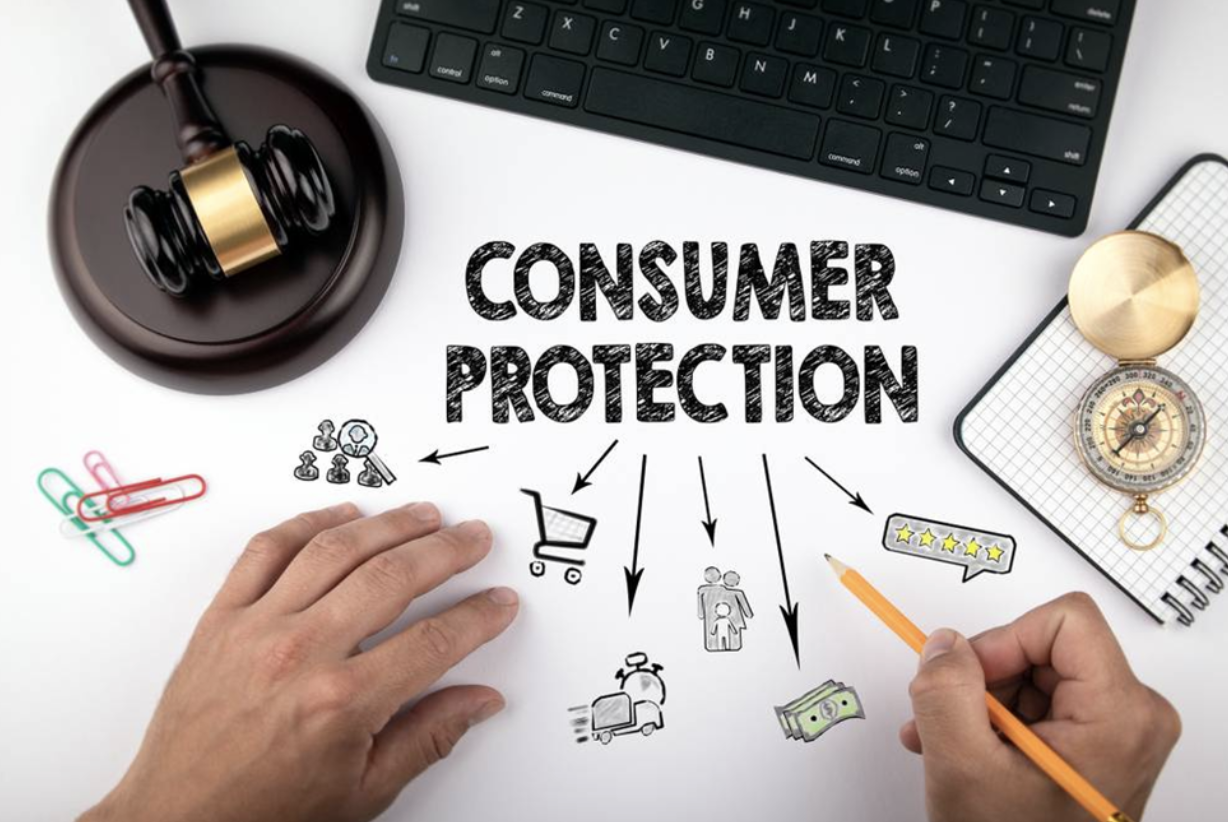By Ola Elberberi
Responsible consumerism and sustainable development are not separate terms as they demand collaborations between producers and consumers to create a more sustainable future. The roles of producer practices and consumer protection are becoming increasingly important as consumers become more aware of the environmental and social consequences of their choices. Responsible producer practices and consumer protection lead to long-term growth in terms of consumption, customer awareness, and evolution.
Producer Practices as an Influence on Sustainable Consumption
Producers bear a large amount of responsibility for supporting sustainable consumption through their actions and decisions. Producers may affect the whole supply chain by using sustainable production practices, eliminating waste, and limiting environmental effect. This approach ensures that products are manufactured and delivered in accordance with the goals of sustainable development.
Sustainable producers work to reduce their carbon footprint by using energy-efficient processes, renewable energy sources, and eco-friendly packaging. They also promote resource conservation, waste minimization, and responsible raw material procurement. Producers contribute to the overall goal of reducing environmental degradation and promoting responsible consumerism by embracing sustainable production practices.
The actions of responsible producers go beyond environmental concerns to include fair trade, ethical labor standards, and social responsibility. Producers develop a feeling of social responsibility and empower their employees by guaranteeing fair salaries, safe working conditions, and fostering inclusivity and diversity. Such activities help to sustainable development by fostering a more equal and just society.
Protecting Consumers: Encouraging Responsible Decisions
Initiatives aimed at promoting responsible consumption and sustainable development are essential. These measures promote moral corporate practices and guarantee that customers have access to correct information by defending consumer rights and interests.
According to the Sustainable Brands website, consumer protection laws and regulations uphold product safety requirements and forbid the sale of dangerous or deceptive goods. Additionally, they encourage advertising transparency by requiring companies to provide truthful information about the environmental impact and sustainability claims made by their products. By holding businesses accountable for their practices, consumer protection measures empower consumers to make informed decisions aligned with their values.
The growth of consumer protection has seen the introduction of sustainable labels and certifications. These voluntary initiatives provide customers open disclosure about a product’s social responsibility, ethical sourcing, and environmental effect. Labels such as organic, fair trade, and eco-friendly help consumers identify and support products that align with their sustainability goals. In order to meet consumer expectations, producers are being pushed to adopt sustainable practices by this evolution, which reflects the rising awareness of and demand for responsible consumption.

Customer Awareness: Influencing Change through Smart Decisions
Thanks to easier access to information and rising sustainability concerns, consumer awareness has undergone a significant transformation recently. Consumers now aspire to make informed decisions that support sustainable development. They actively seek out goods with minimal negative effects on the environment, ethical production practices, and ethical sourcing.
According to Lee and Shin (1970), education campaigns, media that emphasize content on sustainability, and online platforms that highlight the effects of consumer decisions all contribute to raising consumer awareness. Consumers are driving change through their purchase choices as they demand greater transparency from producers and hold companies accountable for their actions.
The Development of Sustainable Systems and their Evolution
The advancement of consumer protection programs, producer practices, and consumer awareness show how everyone is committed to sustainable development. Consumer protection laws enable people to make ethical decisions, while producers are changing their business methods to reduce their negative environmental effects and embrace social responsibility. The demand for ethical products is rising concurrently as consumer awareness increases, leading consumers to look for sustainable options.
According to an 2006 article entitled “Environmental impacts of products: A detailed review of studies” by Tukker and Jansen, the path to sustainable development lies in collaborative efforts between producers, consumers, and policymakers. To establish clear regulations, encourage sustainable practices, and provide education on responsible consumption, governments, businesses, and civil society must collaborate. By fostering collaboration and accountability, we can collectively promote sustainable development and ensure a more sustainable future.
Producers must prioritize sustainability throughout their supply chains and business operations. They can engage in sustainable sourcing practices, promote circular economy models, and invest in research and development to create innovative and eco-friendly products. By integrating sustainability into their core business strategies, producers can set an example for other industries and inspire positive change throughout the market.
Non-profit organizations and consumer advocacy groups also help responsible consumerism develop. These organizations seek to inform and empower consumers, offer tools for sustainable living, and hold corporations responsible for their effects on the environment and society. These organizations significantly contribute to the demand for sustainable goods and services by promoting openness and ethical behavior.
The evolution of producer practices, consumer protection programs, and consumer awareness is driving the rise of responsible consumerism and sustainable development. Producers are using sustainable techniques to satisfy customers’ needs as they become more aware of the consequences of their decisions. In addition, consumer protection laws make sure that people have access to accurate information and are shielded from dishonest business practices. In future, responsible consumption may become the norm, paving the way for a more just and sustainable society for future generations. This can be accomplished through promoting teamwork and placing a high priority on sustainability mentions the International Institute for Sustainable Development in 2023.
Responsible consumerism and sustainable development have no separation, demanding collaborations between producers and consumers to create a more sustainable future. The role of producer practices and consumer protection is becoming increasingly important as consumers become more aware of the environmental and social consequences of their choices. It is a topic that emphasizes how responsible producer practices and consumer protection actions lead to long-term growth in terms of consumption, customer awareness, and evolution.***
(This article is written as part of an individual assignment for Responsible Consumerism, MKTG 4312 class)
